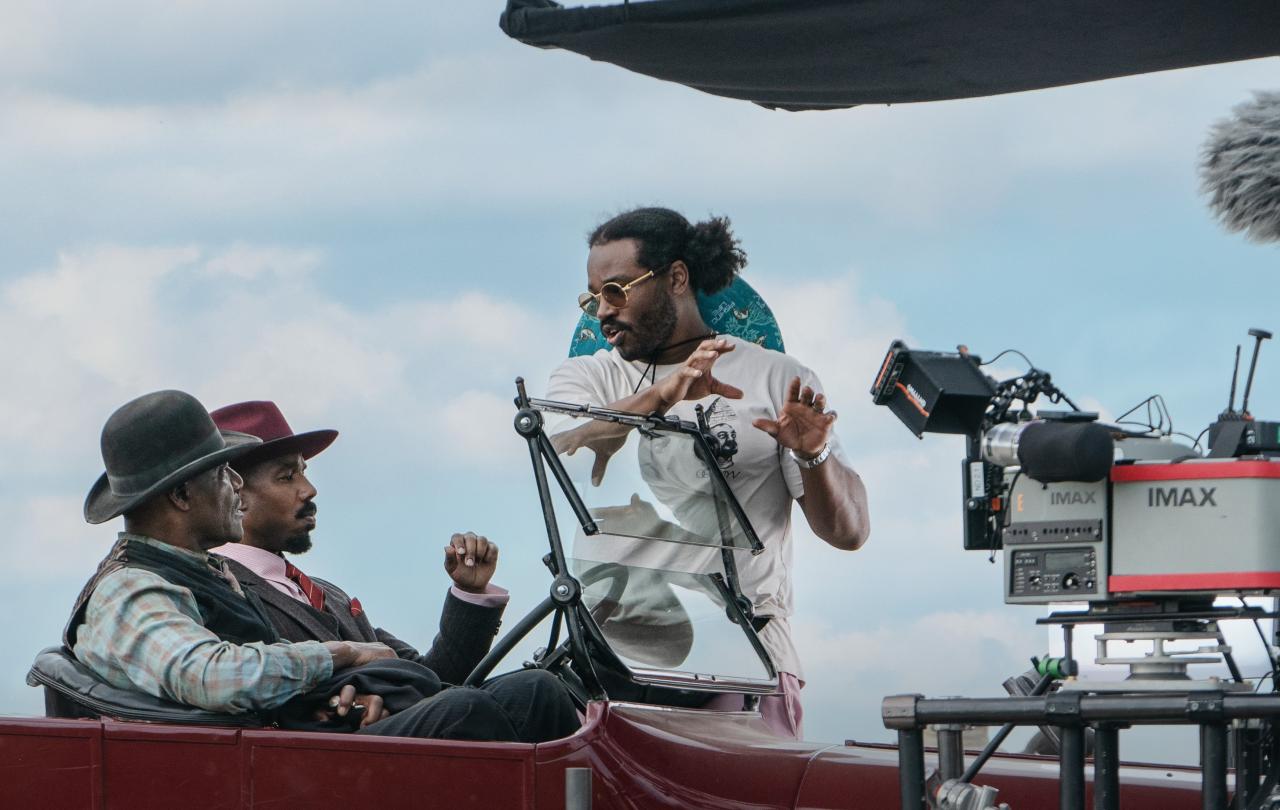
Coming off the back of Black Panther and Creed, Ryan Coogler fights off franchise fatigue with Sinners, a historical crime drama turned horror film that might be his most personal film yet. Set in 1932, Michael B. Jordan plays twin brothers returning to their hometown in rural Mississippi to open a juke joint. But a trio of guests, both unwelcome and undead, crash their opening night.
Any film set in the Jim Crow era South following a Black protagonist can set off warning bells for savvy audiences. The blatant racial oppression can often bring with it a fair share of trauma porn. But that’s not what Sinners is about. For a significant chunk of the run-time, the film is downright hopeful. Jordan’s dual role as the brothers Smoke and Stack presents them as dangerous and driven, but also compassionate, responsible and endlessly charismatic – the type of figures who could easily become folk heroes. There’s a scene where Jordan’s Smoke not only employs a young girl to watch his truck, but also teaches her how to negotiate, doing himself a worse deal in the process. Watching them recruit musicians, cooks and sign-painters for their juke joint from the under-appreciated and under-paid is a compelling exploration of Black enterprise.
As night descends, and the juke joint opens for business, this peek into Black enterprise turns into a delightful celebration of Black joy. Chris Hewitt of Empire magazine referred to this film as a ‘stealth musical’ and it’s not hard to see why. Almost every main character gets a musical interlude of some sort. The standout by some distance is newcomer Miles Caton, who plays Sammie, the guitar-playing cousin of Smoke and Stack, who they recruit as the centrepiece of their entertainment for the night. Sammie is at the centre of a musical sequence that will have you leaning forward in your seat in amazement at what cinema is capable of. This film brings with it its own mythology, telling us that there are people whose music is so transcendent, they are capable of piercing the veil between the past, present and future. Sammie is one such person, and his talent attracts everyone for miles around, including ancient Irish vampire, Remmick, played by British star, Jack O’Connell.
Perhaps what’s unusual for a vampire film is that, as an audience, we’re having such a good time at the juke joint, we can almost resent the imposition of the vampires forcing themselves into the narrative. The racial parallels of these monsters might not be as obvious as the ones you find in Jordan Peele’s Get Out, but they are still there. Remmick, as the head vampire, gains the memories of each of his victims, and he wants Sammie’s abilities as a means to communicate through time with those he’s lost. (Yet another example of Ryan Coogler’s ‘no stupid people’ rule. Every character has a convincing reason for doing what they do, even the blood suckers.) The vampires here are drawn in by the music and can represent a white ruling class that wants to exploit Black music for its own purposes, in much the same way that culture vultures took music of black origin like the blues and rock, and popularised it with more palatable white artists like Elvis Presley.
The sequence where the vampires themselves have a riotous, yet melodic dance in the dark, reminiscent of a rowdy worship session.
Perhaps another reason why vampires are such a popular monster to revisit in western culture is how they are a literalised inversion of Christianity. In the same way that Christians are promised an eternal life through the blood of Jesus Christ, vampires get immortality through drinking the blood of their victims. Even the rule where vampires can’t enter a private building without permission could be seen as warped version of the image of Jesus standing at the door of our hearts and knocking as shown in Revelation, the last book in the Bible. Vampires are a perverted vulgarisation of what it means to be a follower of Jesus and this, on an unconscious level as a society, might be why we find them so fascinating. The way the vampires use words like ‘fellowship’ to make their dark gift sound more appealing to those still inside the building suggests Coogler is conscious of this parallel. The sequence where the vampires themselves have a riotous, yet melodic dance in the dark, reminiscent of a rowdy worship session, further emphasises how music can bring people together.
There are so many fascinating aspects to the film it’s impossible to mention them all, which might be deliberate on Coogler’s part, as he tells EBONY:
“I wanted the movie to feel like a full meal, your appetizers, starters, entrees and desserts, I wanted all of it there.”
While this does mean a sequel is unlikely, and some critics have complained of it being over-stuffed, it does mean that the film will richly reward repeat viewing.
By now, Sinners will have no doubt secured its spot in many critics’ top films of the year. Ryan Coogler’s Sinners could so easily fall apart in the hands of a less skilled storyteller, but in the hands of one of the best directors of his generation, it absolutely sings.
Celebrate our 2nd birthday!
Since Spring 2023, our readers have enjoyed over 1,000 articles. All for free.
This is made possible through the generosity of our amazing community of supporters.
If you enjoy Seen & Unseen, would you consider making a gift towards our work?
Do so by joining Behind The Seen. Alongside other benefits, you’ll receive an extra fortnightly email from me sharing my reading and reflections on the ideas that are shaping our times.
Graham Tomlin
Editor-in-Chief





